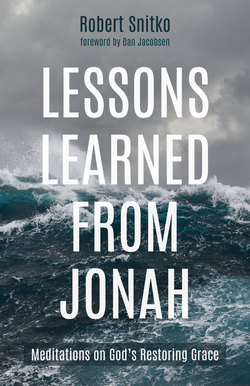Читать книгу Lessons Learned from Jonah - Robert Snitko - Страница 11
На сайте Литреса книга снята с продажи.
Identity
ОглавлениеThen the sailors said to each other, “Come, let us cast lots to find out who is responsible for this calamity.” They cast lots and the lot fell on Jonah. So they asked him, “Tell us, who is responsible for making all this trouble for us? What kind of work do you do? Where do you come from? What is your country? From what people are you?” He answered, “I am a Hebrew and I worship the Lord, the God of heaven, who made the sea and the dry land.”
Jonah 1:7–9
Identity is a loaded word. It is, quite literally, the definition of one’s personhood. Some understand their identity within the context of their work environment. Some associate their identity with their country of origin, or where they have grown up for most of their lives. Others define their identity according to the type of people with which they associate themselves. And for the Christian, identity is found in one’s faith.
As the storm continues in the Jonah narrative, the sailors begin to panic. The cries to their own gods did not calm the storm. So in order to figure out the cause of the storm, they cast lots. The lots fell on Jonah, which urged their need of an explanation. They begin to interrogate him: “Who is responsible for making all this trouble for us? What kind of work do you do? Where do you come from? What is your country? From what people are you? (Jonah 1:8).” The sailors are interested in Jonah’s identity; they want to know who he really is and so they can determine the cause of the storm. Jonah replied to them, “I am a Hebrew and I worship the Lord, the God of heaven, who made the sea and dry land” (Jonah 1:9). Regardless of Jonah’s disobedience, he knows to whom he belongs.
